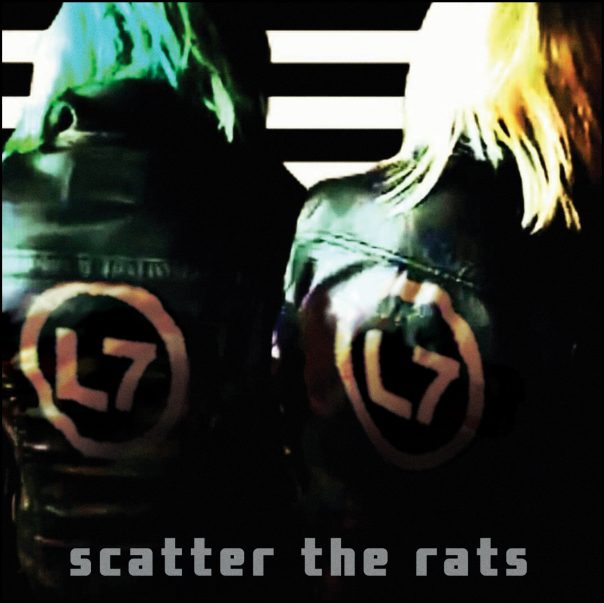REVIEW: L7 brings estrogen to the testosterone fight on ‘Scatter the Rats’

Rock has never been particularly welcoming to women. Perhaps owing to the rampant sexism of the past, fans frequently associate rock’s excesses with testosterone-frenzied toxic masculinity. From Janis Joplin and Suzi Quatro, to Joan Jett and The Runaways, women rockers fought off unwanted advances, harassment and condescension decades before the #MeToo era with loud guitars and a take-no-prisoners attitude. And it’s in precisely this spirit that the legendary L7 returns with Scatter the Rats.
Scatter the Rats
L7
Blackheart Records, May 3
The grunge group’s first album in 20 years will be released through Joan Jett’s label, Blackheart Records. It picks up almost exactly where the band left off: churning out powerful, chugging three-chord rock and roll and channeling good old-fashioned angst—fueled by an uncompromising punk-rock attitude.
Longtime fans of the L.A. band will feel instantly nostalgic hearing the first pummeling riffs of “Burn Baby.” The song’s simplistic progression forms a backbone for its caustic verses and powerful chorus as frontwoman Donita Sparks references some of the more historic injustices suffered by women. “I think you’re a fraud and you know I’m a fake,” she sneers. “But at the end of the day we all burn at the stake.”
“Fighting the Crave” also features heavy power chords, but this song details the dangers of drug addiction with the whole band delivering the anthemic chorus.
“Murky Water Cafe” lowers the intensity a bit, opting for a bluesier, groovier sound. The song relies on pulsing guitar tremolo reminiscent of the band’s biggest hit, “Pretend We’re Dead.” Unfortunately, the effect recedes to the background rather than bringing the song to life. The lyrics make up for that, as Sparks posits herself: “Where the rubber hits the road, on this quadraphonic shit show.”
The punk track “Garbage Truck” immediately recalls the late ’80s Sub Pop Records’ sound. Bassist Jennifer Finch’s larynx-shredding vocals reach Mark Arm levels of enthusiasm, while the band vamps over power chords with the same reckless abandon as Mudhoney, Tad or Nirvana.
“Holding Pattern” stands out as one of the album’s more melodically complex songs, suggesting the band has matured its songwriting in the intervening years. As if referencing this new, more tuneful musical direction, Sparks sings, “History’s dying, the future’s got to live” in a high, clear voice, bereft of its usual growling intensity.
Of the album’s 11 tracks, only two exceed four minutes. The short songs hit hard one after the other, like a barrage of a boxer’s punches. There are no extended jams, no jazz chords and no complicated time signatures. What the listener encounters instead is a blistering series of musical vociferations—angry outbursts tempered by slightly less angry outbursts, complete with at least one conventionally tuneful song.
L7 seems poised to reap the benefits of a more female-friendly world of rock and roll. Of course, this brave new world really isn’t that different, and only looks more welcoming to women when compared to the dark days of rock’s past. And so, there is still a need for L7’s uncompromising rage and determination to continue the fight, maybe now more than ever.
This article has been corrected to say Jennifer Finch sings on “Garbage Truck” instead of Donita Sparks.
Follow writer David Gill at Twitter.com/songotaku and Instagram/songotaku.
